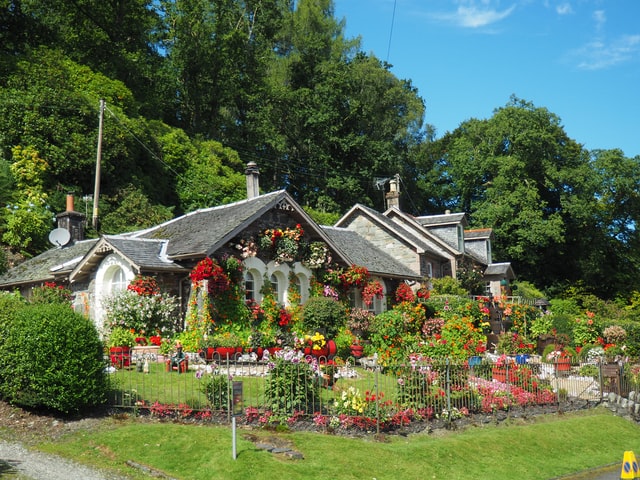Are you a gardener, but would you like to work for a private household? There is a lot more to it than you might think! And it is important to understand what it takes to work in a private household. To make sure it is indeed the right step to take for you.
So what do you need to know to become a private household gardener?
Difference Between Private Household / Commercial Gardeners
So, if you are looking to learn how to become a private household Gardener. Then firstly it’s important to know the difference!
Simply put, if you are a private household gardener, you are working for a family, or privately owned house or estate. This can be a several bedroom, family home. Or a large estate with several other members of staff working in a large team together.
So the domestic/private household part purely is regarding the fact that you do not work in a corporate environment. But rather for a family directly. There still can be many different types of private household gardeners working in households. But there are some very key differences, between working in a corporate gardening environment, for example, and a private household.
The transition
It is quite a common route for a more corporate gardener to progress into working for a private household. And if you have never worked in a private household setting, there can be a lot to learn. To adjust to. And to get used to! You can be the most highly skilled gardener in the world with all the gardening and groundsmen knowledge. But moving to a private household setup requires a different kind of mindset. And if you have never worked in a domestic setting before, it can be daunting if you are not fully prepared.
Privacy & Discretion
The first thing you need to learn when you become private household gardener is privacy. When you are working in more corporate gardening roles, it’s likely there will be little to no interaction with people or clients at all. You simply do your job and leave.
This is what is very different when working for a private household. All of a sudden you are on someone’s private property. And although chances are you will spend most of your working day outside. You will still be interacting with a lot of the members of the family, and be in their home.
So being able to understand privacy, and discretion, are absolute key. It’s really about finding out what your employer prefers. Perhaps they do not mind you being in the same room as them when you are working. But perhaps they would find it really disturbing and prefer their privacy.
Understand that you are in someone’s private, home space. They want to feel secure, comfortable, and able to do whatever they want. Without feeling like you are imposing on their privacy. Indoors or outdoors.
So you need to understand that some people will want you to not be working close to them. And work your schedule around that. And if you are working in the same area as they might be, always be discreet. Be polite in saying hello and goodbye. Always ask to see if it is ok for you to start working in the area where they are at. And never repeat any private conversations you might have overheard!
Working around families and children
Have you worked around children before? As a private household gardener, it can very much be a regular occurrence.
Firstly, practically you should look at getting a DBS if you do not already have one. It is quite common for an employer to pay for a DBS, but it is good to have this conversation and not assume they would give you one. Already having one, can also work in your favour sometimes when it comes to job applications.
But besides the documents, it is important to understand if it is something you are comfortable with. Do you like children? Do you have them yourself? Some people are natural around children and love being around them. Some people, however, are not.
And that does not make you unsuited to work at private households! But it is something to consider within yourself. When you are applying for private household gardening roles, do ask about children.
And even if there are children in the family, it does not automatically mean you will be working around them a lot. If the children go to school, are at boarding school, have a nanny, or parents doing all the sole care. As a gardener, there will be a small chance you will be around them much.
But in general, working for a private household is definitely a very differents et up than working in a corporate environment. Lots of gardeners love the more personal touches it brings, but make sure it is right for you.
How can Polo & Tweed Help?
Do you want to learn more about how to become a private household gardener? Or are you ready to apply? We can help! Polo & Tweed work with clients all over the world looking for part-time, full time, and freelance gardeners for private households. Our experienced recruitment consultants will be able to match your skills with the right job that will suit you! Why not contact us here now to register with us and we look forward to speaking to you, and finding your first private household gardening job!

